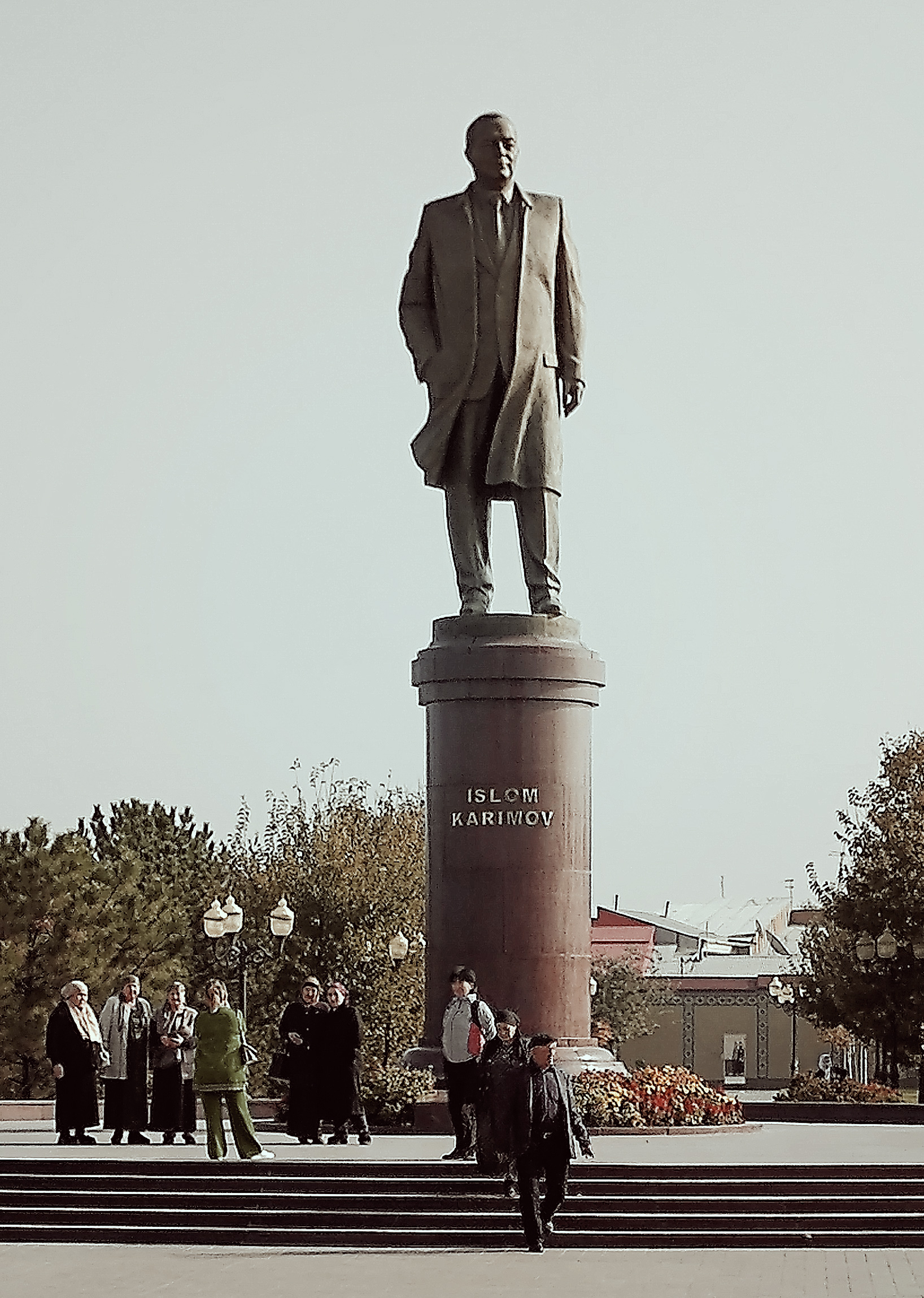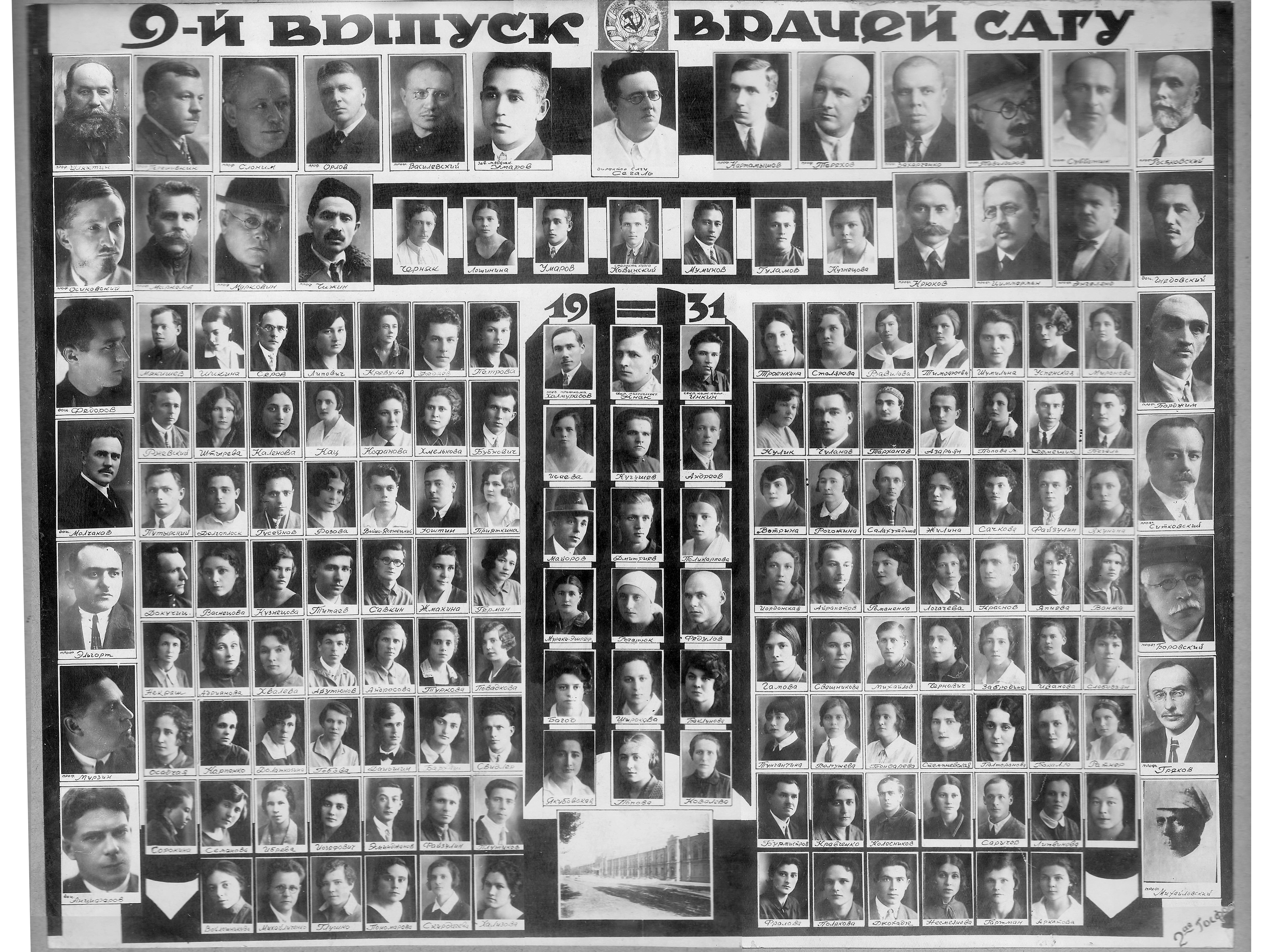|
Dunyo Uzbeklari
Ismat Makhmudovich Khushev ( Uzbek: ''Ismat Xushev''; Russian: Исмат Хушев; born 20 June 1958) is an author, politician, journalist, and a political analyst from Uzbekistan. He is a former member of the Uzbek Parliament and a cabinet member of former Uzbek President Islam A. Karimov. On June 26, 2021, Khushev was officially inducted into the Writers’ Union of Uzbekistan. Personal life Khushev was born on June 20, 1958, in the town of Kitab in the Qashqadaryo Region, Uzbekistan. He's married and has four children. He was educated in Moscow State University and Tashkent State University at the Department of Journalism. After being arrested 3 times due to allegedly being involved in a coup d'état after opposing Karimov, Khushev fled to Moscow, Russia, and then sought permanent residence in Canada. Khushev is the founder and chief editor of the Uzbek & Russian newspaper Dunyo Uzbeklari, electronically published from Toronto, Canada. See also * Jahangir Mamat ... [...More Info...] [...Related Items...] OR: [Wikipedia] [Google] [Baidu] |
Uzbek Language
Uzbek (''Oʻzbekcha, Oʻzbek tili or Ўзбекча, Ўзбек тили''), formerly known as ''Turki'' or ''Western Turki'', is a Turkic language spoken by Uzbeks. It is the official, and national language of Uzbekistan. Uzbek is spoken as either native or second language by 44 million people around the world (L1+L2), having some 34 million speakers in Uzbekistan, 4.5 million in Afghanistan, and around 5 million in the rest of Central Asia, making it the second-most widely spoken Turkic language after Turkish. Uzbek belongs to the Eastern Turkic or Karluk branch of the Turkic language family. External influences include Arabic, Persian and Russian. One of the most noticeable distinctions of Uzbek from other Turkic languages is the rounding of the vowel to , a feature that was influenced by Persian. Unlike other Turkic languages, vowel harmony is nigh-completely lost in modern Standard Uzbek, though it is (albeit somewhat less strictly) still observed in its dialects, as wel ... [...More Info...] [...Related Items...] OR: [Wikipedia] [Google] [Baidu] |
Russian Language
Russian (russian: русский язык, russkij jazyk, link=no, ) is an East Slavic languages, East Slavic language mainly spoken in Russia. It is the First language, native language of the Russians, and belongs to the Indo-European languages, Indo-European language family. It is one of four living East Slavic languages, and is also a part of the larger Balto-Slavic languages. Besides Russia itself, Russian is an official language in Belarus, Kazakhstan, and Kyrgyzstan, and is used widely as a lingua franca throughout Ukraine, the Caucasus, Central Asia, and to some extent in the Baltic states. It was the De facto#National languages, ''de facto'' language of the former Soviet Union,1977 Soviet Constitution, Constitution and Fundamental Law of the Union of Soviet Socialist Republics, 1977: Section II, Chapter 6, Article 36 and continues to be used in public life with varying proficiency in all of the post-Soviet states. Russian has over 258 million total speakers worldwide. ... [...More Info...] [...Related Items...] OR: [Wikipedia] [Google] [Baidu] |
Uzbek Parliament
The Oliy Majlis (Cyrillic ''Олий Мажлис'', ) is the parliament of Uzbekistan. It succeeded the Supreme Council of the Republic of Uzbekistan in 1995, and was unicameral until a reform implemented in January 2005 created a second chamber. The legislative chamber has 150 deputies elected from territorial constituencies. The Senate has 100 members, 84 elected from the regions, from the Autonomous Republic of Karakalpakstan and from the capital, Tashkent, and an additional 16 nominated by the President of Uzbekistan. Both houses have five-year terms. History Supreme Soviet of the Uzbek SSR The Supreme Soviet of the Uzbek SSR ( uz, Ўзбекистон ССР Олий Совети, russian: Верховный Совет Узбекской ССР) operated in the country during the Soviet era as its main legislature. Since its establishment in July 1938, when it succeeded the All-Uzbek Congress of Soviets, it has held 12 convocations: *1st convocation (1938–1 ... [...More Info...] [...Related Items...] OR: [Wikipedia] [Google] [Baidu] |
Islam Karimov
Islam Abduganiyevich Karimov ( uz, Islom Abdugʻaniyevich Karimov / Ислом Абдуғаниевич Каримов, italics=no; russian: link=no, Ислам Абдуганиевич Каримов; 30 January 1938 – 2 September 2016) was the leader of Uzbekistan and its predecessor state, the Uzbek Soviet Socialist Republic, from 1989 until his death in 2016. He was the last First Secretary of the Communist Party of Uzbekistan from 1989 to 1991, when the party was reconstituted as the People's Democratic Party of Uzbekistan (PDP); he led the PDP until 1996. He was the President of the Uzbek SSR from 24 March 1990 until he declared the independence of Uzbekistan on 1 September 1991. He declared Uzbekistan an independent nation on 31 August 1991. He subsequently won a non-democratic presidential election on 29 December 1991, with 86% of the vote. Foreign observers and opposition party cited voting irregularities, alleging state-run propaganda and a falsified vote count. Kari ... [...More Info...] [...Related Items...] OR: [Wikipedia] [Google] [Baidu] |
Kitab, Uzbekistan
Kitob ( uz, Kitob, russian: Китаб, Kitab) is a city in Kitob District of Qashqadaryo Region in Uzbekistan. It is the administrative center of Kitob District. Its population is 40,800 (2016). During the Soviet period, a major astronomical observatory An observatory is a location used for observing terrestrial, marine, or celestial events. Astronomy, climatology/meteorology, geophysical, oceanography and volcanology are examples of disciplines for which observatories have been constructed. His ... was built at Kitab to commemorate its medieval reputation as the 'town of astronomers.' References Populated places in Qashqadaryo Region Cities in Uzbekistan {{Uzbekistan-geo-stub ... [...More Info...] [...Related Items...] OR: [Wikipedia] [Google] [Baidu] |
Qashqadaryo Region
Qashqadaryo Region ( uz, Qashqadaryo viloyati, Қашқадарё вилояти, قەشقەدەريا ۋىلايەتى; old spelling ''Kashkadarya Region'', russian: Кашкадарьинская область) is one of the regions of Uzbekistan, located in the south-eastern part of the country in the basin of the river Qashqadaryo and on the western slopes of the Pamir-Alay mountains. It borders with Tajikistan, Turkmenistan, Samarqand Region, Bukhara Region and Surxondaryo Region. It covers an area of 28,570 km2. The population is estimated 3,408,345 (2022), with 57% living in rural areas. The regional capital is Qarshi (278,300 inhabitants). Administrative divisions The Qashqadaryo Region consists of 13 districts (listed below) and two district-level cities: Qarshi and Shahrisabz. There are 12 cities (Qarshi, Shahrisabz, Gʻuzor, Qamashi, Beshkent, Koson, Kitob, Muborak, Yangi Nishon, Tallimarjon, Chiroqchi, Yakkabogʻ) and 117 urban-type settlements in the Q ... [...More Info...] [...Related Items...] OR: [Wikipedia] [Google] [Baidu] |
Uzbekistan
Uzbekistan (, ; uz, Ozbekiston, italic=yes / , ; russian: Узбекистан), officially the Republic of Uzbekistan ( uz, Ozbekiston Respublikasi, italic=yes / ; russian: Республика Узбекистан), is a doubly landlocked country located in Central Asia. It is surrounded by five landlocked countries: Kazakhstan to the north; Kyrgyzstan to the northeast; Tajikistan to the southeast; Afghanistan to the south; and Turkmenistan to the southwest. Its capital and largest city is Tashkent. Uzbekistan is part of the Turkic world, as well as a member of the Organization of Turkic States. The Uzbek language is the majority-spoken language in Uzbekistan, while Russian is widely spoken and understood throughout the country. Tajik is also spoken as a minority language, predominantly in Samarkand and Bukhara. Islam is the predominant religion in Uzbekistan, most Uzbeks being Sunni Muslims. The first recorded settlers in what is now Uzbekistan were Eastern Iranian no ... [...More Info...] [...Related Items...] OR: [Wikipedia] [Google] [Baidu] |
Moscow State University
M. V. Lomonosov Moscow State University (MSU; russian: Московский государственный университет имени М. В. Ломоносова) is a public research university in Moscow, Russia and the most prestigious university in the country. The university includes 15 research institutes, 43 faculties, more than 300 departments, and six branches (including five foreign ones in the Commonwealth of Independent States countries). Alumni of the university include past leaders of the Soviet Union and other governments. As of 2019, 13 List of Nobel laureates, Nobel laureates, six Fields Medal winners, and one Turing Award winner had been affiliated with the university. The university was ranked 18th by ''The Three University Missions Ranking'' in 2022, and 76th by the ''QS World University Rankings'' in 2022, #293 in the world by the global ''Times Higher World University Rankings'', and #326 by ''U.S. News & World Report'' in 2022. It was the highest-ran ... [...More Info...] [...Related Items...] OR: [Wikipedia] [Google] [Baidu] |
Tashkent State University
National University of Uzbekistan (NUUz) () is a public university located in Tashkent, Uzbekistan. NUUz is the oldest and largest university in Uzbekistan. National University of Uzbekistan is named after Mirzo Ulugbek. NUUz professors and teaching staff work with modern materials and science and have relationships with the world's distinguished scientific schools. History Higher educational institutions originated in eastern Iran in the 10th century CE and spread to major urban centers throughout the Middle East by the late 11th century. Simultaneously, universities were established in the West. In the beginning of the 20th century, jadids tried to establish universities with the collaboration of Russian democrats. Muslim People University was headed by a council consisting of 45 people. It aimed to offer higher, secondary and primary education. In autumn, Muslim People University and its founders were the first victims of repression from communists. The government of the So ... [...More Info...] [...Related Items...] OR: [Wikipedia] [Google] [Baidu] |
Dunyo Uzbeklari
Ismat Makhmudovich Khushev ( Uzbek: ''Ismat Xushev''; Russian: Исмат Хушев; born 20 June 1958) is an author, politician, journalist, and a political analyst from Uzbekistan. He is a former member of the Uzbek Parliament and a cabinet member of former Uzbek President Islam A. Karimov. On June 26, 2021, Khushev was officially inducted into the Writers’ Union of Uzbekistan. Personal life Khushev was born on June 20, 1958, in the town of Kitab in the Qashqadaryo Region, Uzbekistan. He's married and has four children. He was educated in Moscow State University and Tashkent State University at the Department of Journalism. After being arrested 3 times due to allegedly being involved in a coup d'état after opposing Karimov, Khushev fled to Moscow, Russia, and then sought permanent residence in Canada. Khushev is the founder and chief editor of the Uzbek & Russian newspaper Dunyo Uzbeklari, electronically published from Toronto, Canada. See also * Jahangir Mamat ... [...More Info...] [...Related Items...] OR: [Wikipedia] [Google] [Baidu] |
Jahangir Mamatov
Jahangir Mamatov ( uz, Jahongir Mamatov; born September 1, 1955) is a linguist, lexicographer, author, journalist, and a political analyst of Central Asian issues. He is a former member of the Uzbek Parliament and a co-author of Uzbekistan's Declaration of Independence. His writings, tenure in parliament, and other political activities were often greatly at odds with the Uzbek government. He was arrested but escaped into exile for many years. In 2005 he was instrumental in forming the democratic opposition group Congress of Democratic Uzbekistan (CDU) and became its first chairman. His writings are still banned in Uzbekistan. During the Soviet era Mamatov was born on September 1, 1955, in Samarqand Region, married in 1980, and has four children. He was educated in Samarqand and at the Department of Journalism of Tashkent State University from 1973 to 1979, where he did research in journalism and linguistics until 1981. He began his journalism career with the ''Toshkent Haqiq ... [...More Info...] [...Related Items...] OR: [Wikipedia] [Google] [Baidu] |




